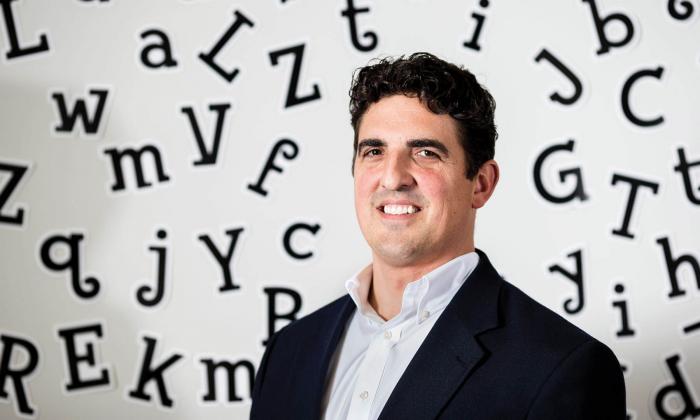Optimism is the belief that the future holds possibilities. When juxtaposed to the more popular cynicism, pessimism and sarcasm, optimism appears positively radical. But despite the fact that smiling people are often viewed with caution, radical optimism is part of why I teach.
Radical optimism requires that I bolster my beliefs with actions. As a teacher, being radically optimistic means I acknowledge my students and their individual identities. I put out a vibe that says I love what I do. I introduce myself to students I have never met and tell them I’m happy to see them. I introduce students to other students. I prepare a seat for each student before the school year even begins.
My seat-preparation method is unoriginal, unremarkable and particularly effective in middle school. Using sticky notes, I number every seat. I then distribute a duplicate set of numbered sticky notes as I welcome each child to the classroom for the first time; students must find the seats that match their numbers. In doing this, I protect student dignity by preventing the potential for embarrassment or rejection. Imagine the scene in Forrest Gump in which a young Forrest climbs onto the bus and begins the slow and terrifying search for a place to sit. As he hears the cruel word “taken” again and again, he continues to walk, wondering if there will ever be a place for him.
Optimism is the belief that the future holds possibilities.
A child shunned by a cruelly delivered “taken” on the first day of my class has been wounded from the start. I refuse to let this happen because I am optimistic that helping each student feel welcome will contribute to everyone’s success.
“Welcome to room C-8, Alejandra. I’m Mr. Donohue. I’m excited you are here. Seat 7 is yours. It has been waiting all summer for you.”
In the end, optimism is a choice I make for the sake of my students. But is it really such a sacrifice to be optimistic? In more than 20 years of teaching, optimism has helped me at least as much as it has helped my students.
Love is the other reason why I teach, and it relates to my optimism. As a person of faith, I see beauty in Jesus’ call to “love your neighbor as yourself.” I have been the fortunate recipient of such love. The significant adults in my life sacrificed much for me, showed me grace when I did not deserve it and took the time to invest in me. They would not give up on me. Teaching is my way of trying to do the same for others.
In high school, I wasn’t sure if I was “college material.” I enjoyed school but was generally considered a class clown with “potential.” Every report card said, “Sense of humor is enjoyable, but interferes with classroom control.” However, my teachers were kind and patient with me.
In English class my junior year, we had to write a final essay on the true meaning of growing up. I am certain my teacher, Mrs. Cedargreen, expected something half-hearted and humorous from me. For this assignment, however, I really tried. I sweated over the paper, writing and revising, starting over several times. I was very nervous. I worried my teacher wouldn’t like it or that she might not take it seriously. I had uncharacteristically made myself vulnerable, and I didn’t know what would happen.
A few anxiety-filled days later, I got my essay back. A short note was scrawled in red cursive on the cover. I stared at it for a long time. At first I thought I had someone else’s paper.
The note read, “This is beautiful! What a gift you have given me to end the year.” Then a large circled “A” nearby.
I still remember the emotional response that came over me. I kept the paper close to me for the rest of the day. I kept taking it out of my folder and looking again—checking to see if the note had changed. I didn’t let it get wrinkled. I didn’t fold it.
That was 27 years ago, and I have never forgotten it. Her sincere, caring words strengthened my belief in myself. It made me optimistic about my own future. That’s what I try to do for my students. That’s why I teach.
Chad A. Donahue teaches English language arts and social studies at a middle school in Monroe, Washington.
Share Your Story:
We want to hear what motivates you to get up each morning and serve students in our nation's schools. Send your 600-word submission for the "Why I Teach" column to us here.


0 COMMENTS